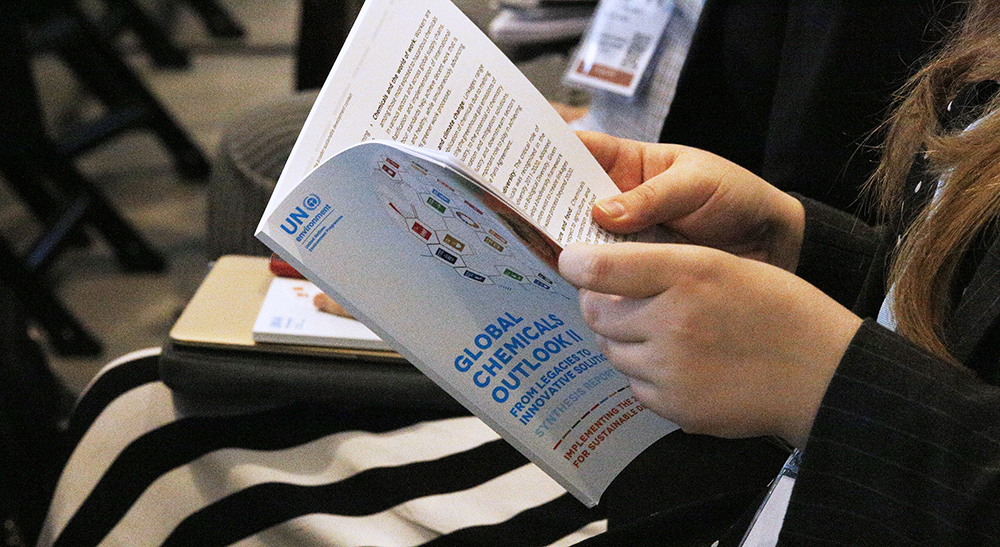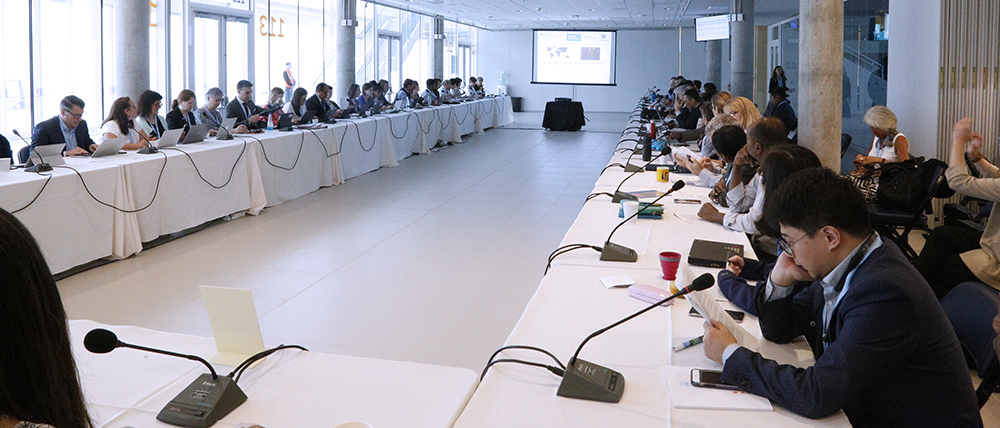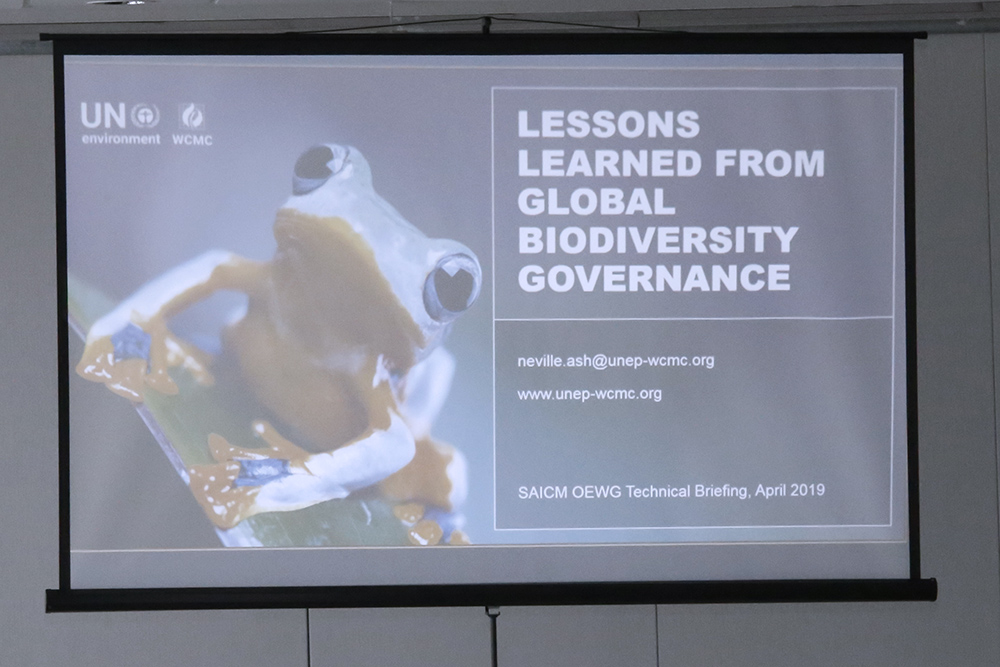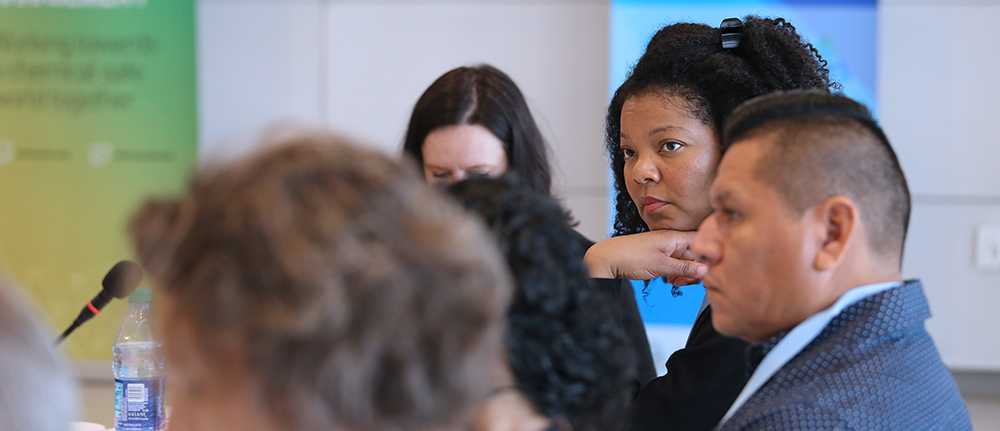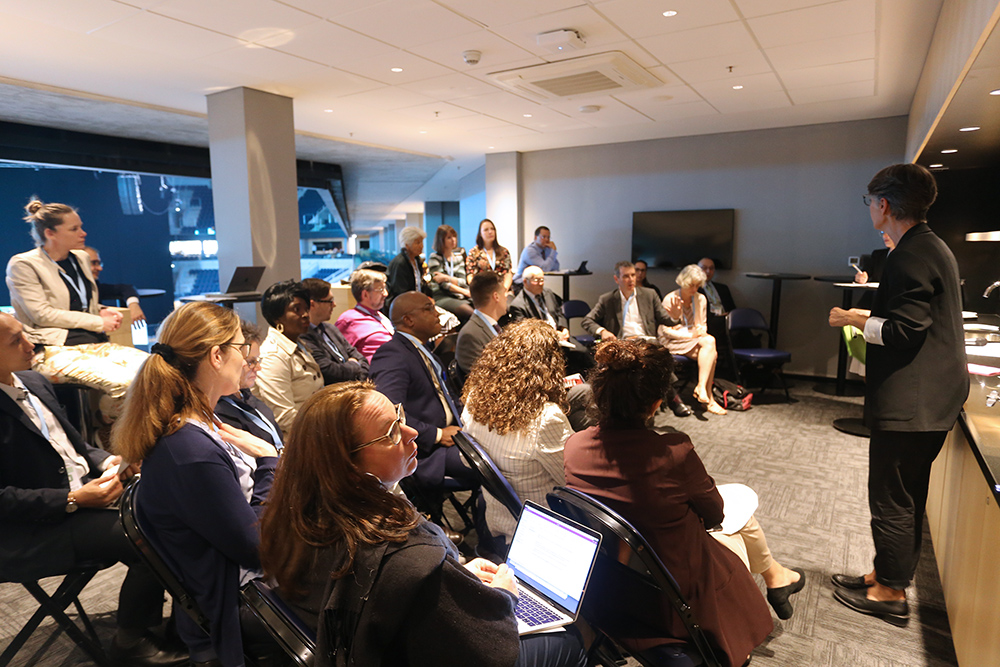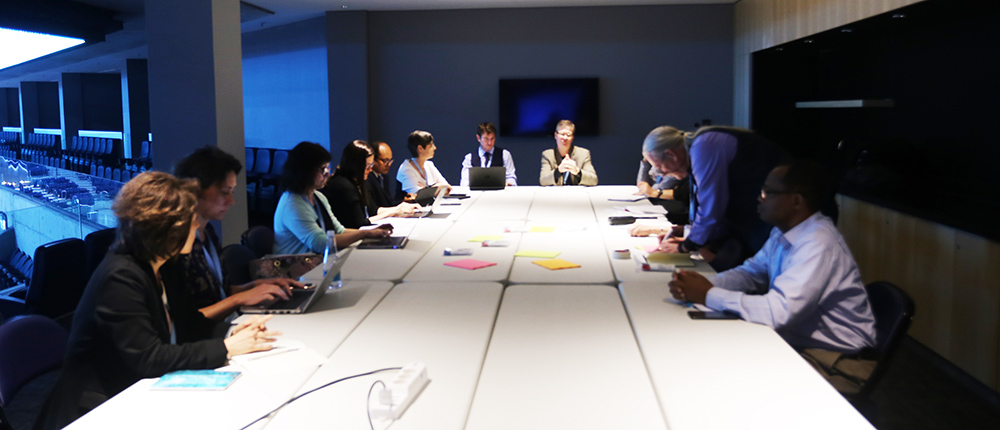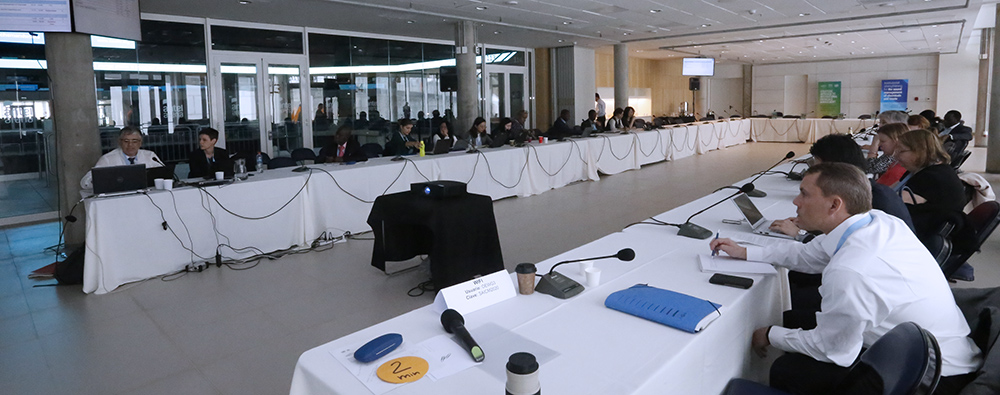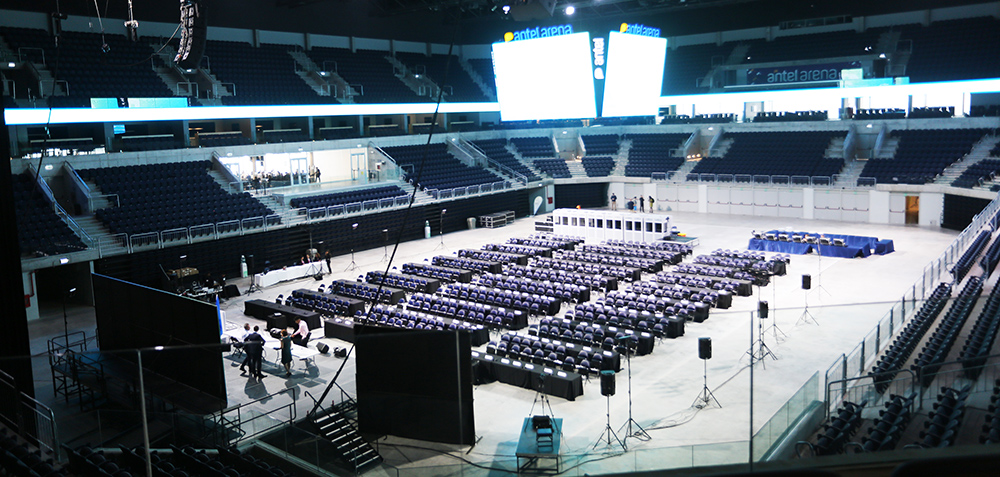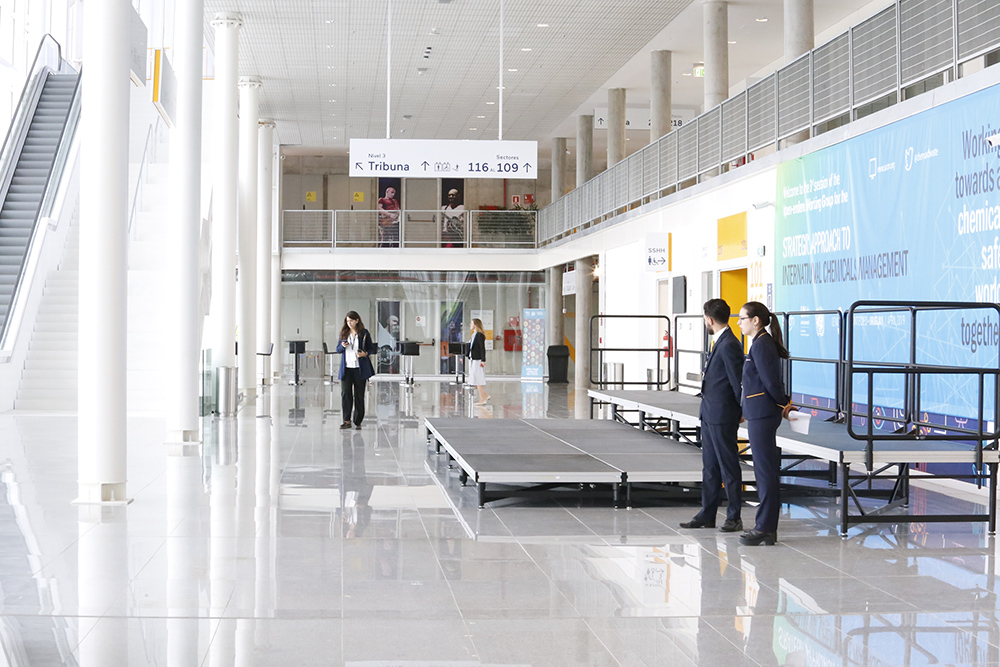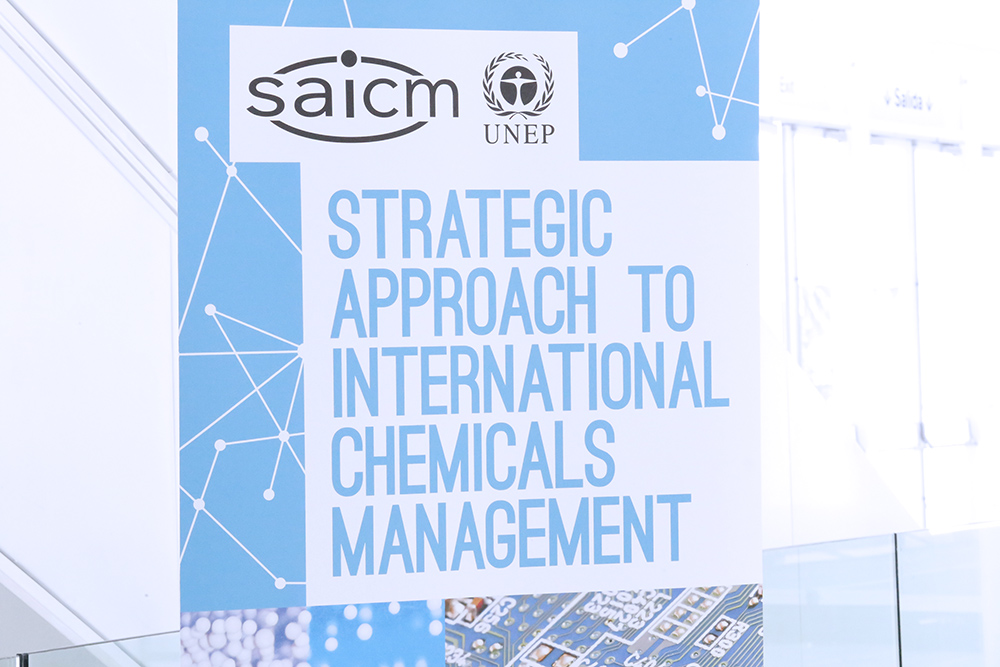Highlights for Monday, 1 April 2019
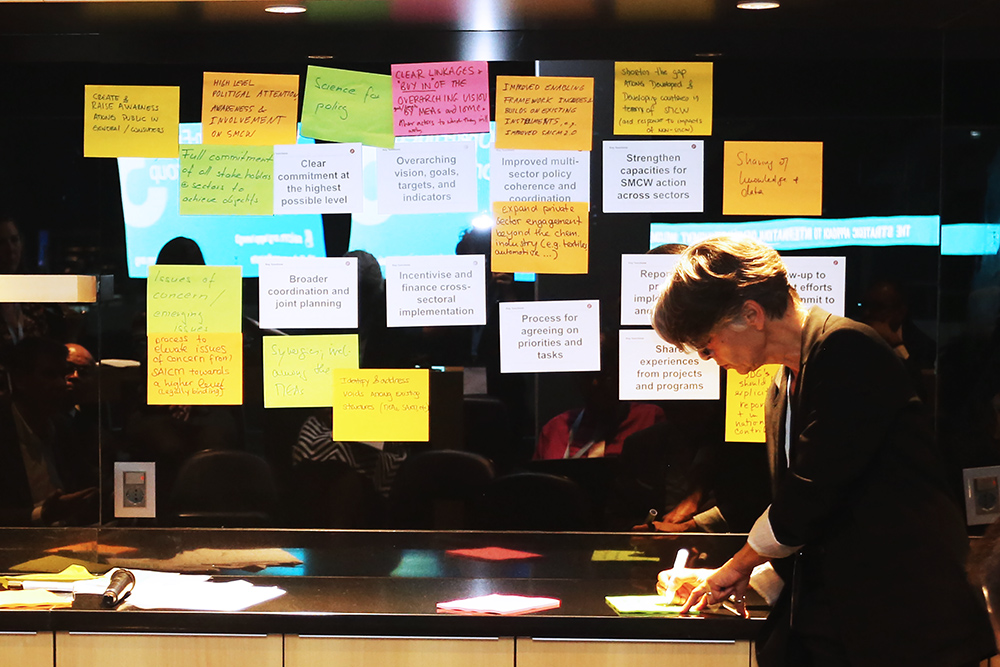
Minu Hemmati, Adelphi, led breakout Group 1: " Division of Labor Between the SAICM Successor and the encompassing Governance Arrangement or Platform" of the session on technical session on "An Improved Enabling Framework on Chemicals and Waste: A Multi-Stakeholder Dialogue"
Delegates to the third Open-ended Working Group (OEWG3) of the International Conference on Chemicals Management (ICCM) gathered at the Antel Arena in Montevideo, Uruguay, on Monday, 1 April 2019, for a pre-session set of "technical briefings." One briefing featured a "deep dive" into the second edition of the UN Environment Programme's (UNEP) Global Chemicals Outlook (CGO II), hosted by UNEP. The other featured a dialogue hosted by the Government of Germany on an improved enabling framework on chemicals and waste, with a view to helping inform discussions planned during OEWG3 on a post-2020 platform.The dialogue on an improved enabling framework heard presentations on lessons learned from the global biodiversity governance process, including the implementation of the Aichi Targets and the negotiations for a post-2020 framework, and on the findings of the report commissioned by the German Environment Agency from Adelphi and Summit Outcomes on “Global Governance on Chemicals and Waste.” The meeting then broke into four smaller groups to brainstorm on:
The division of labor between the successor to the Strategic Approach to International Chemicals Management (SAICM) and the encompassing governance arrangement for any new chemicals and waste platform for post-2020 work;
Routes and fora to facilitate accountability in chemicals and waste work beyond 2020;
Goals and targets involving chemicals and waste beyond 2020; and
Process until ICCM5 in 2020 and beyond.
The GCO II discussion focused on six distinct sessions which followed the structure of the GCO II.
Delegates reflected on, inter alia:
The need for capacity building in the technical areas of chemicals management, especially for developing countries;
Risk assessments and sharing these across countries; and
How best to strengthen knowledge sharing and outreach on chemicals and wastes.
Among the session’s highlights were:
The World Health Organization (WHO) estimate that the global burden of disease from selected chemicals was around 1.6 million in 2016, and this is likely an underestimate;
Celebration by many participants of the multi-stakeholder approach, with emphasis on including additional sectors going forward such as labor and education; and
The call by some for increased incentives for collaboration between industry and government on green chemistry and innovation.
IISD Reporting Services, through its Earth Negotiations Bulletin (ENB) meeting coverage, will provide daily web coverage and a summary and analysis report from OEWG3.
Photos by IISD/ENB | Ángeles Estrada Vigil
For photo reprint permissions, please follow instructions at our Attribution Regulations for Meeting Photo Usage Page
A Deep Dive Into the Second Edition of the Global Chemicals Outlook II
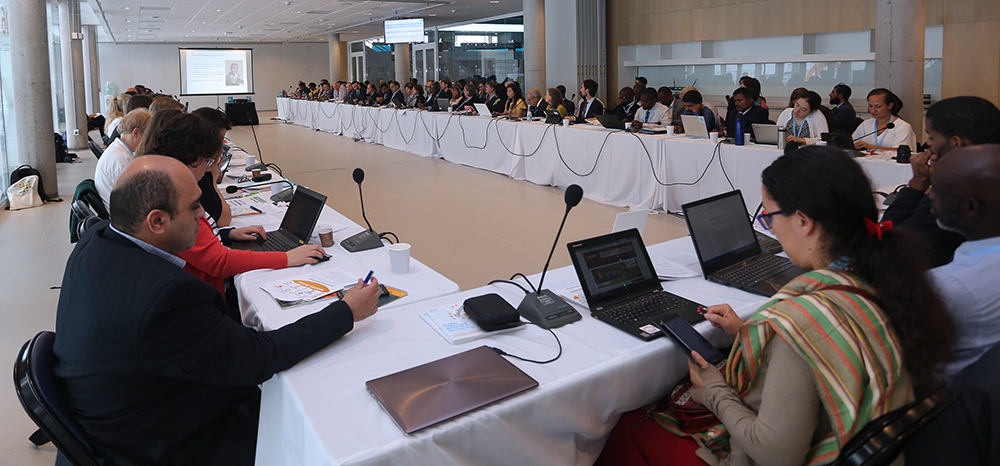
A view of the room
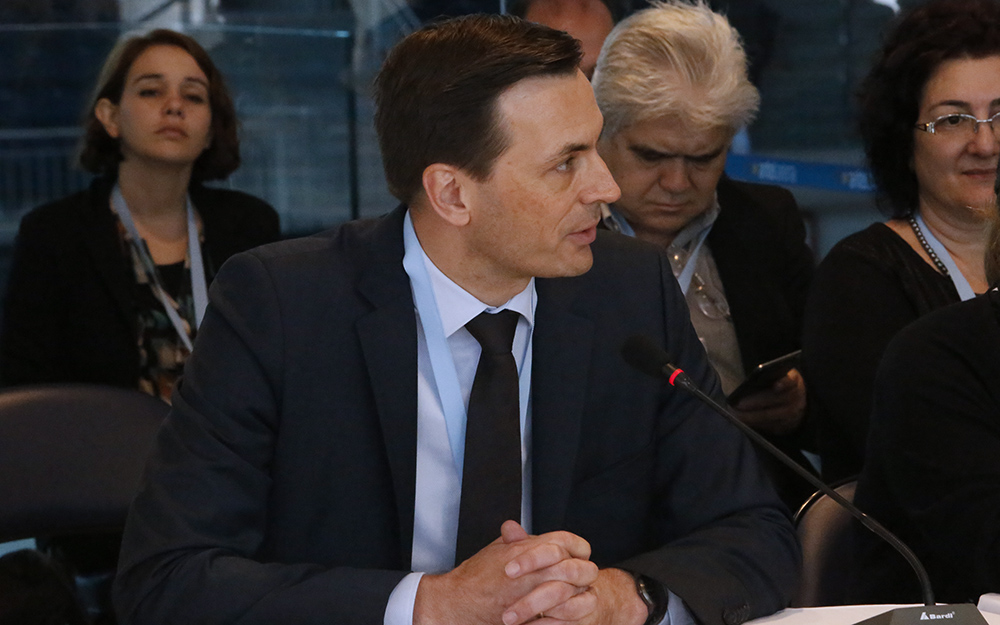
Jacob Duer, Head of SAICM Secretariat
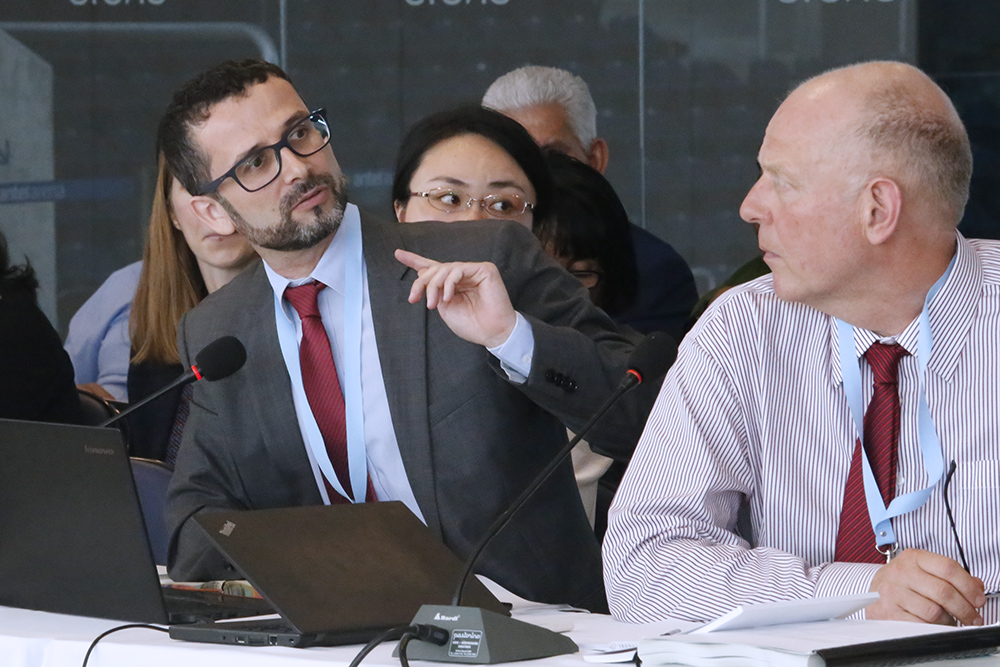
Jordi Pon, UN Environment
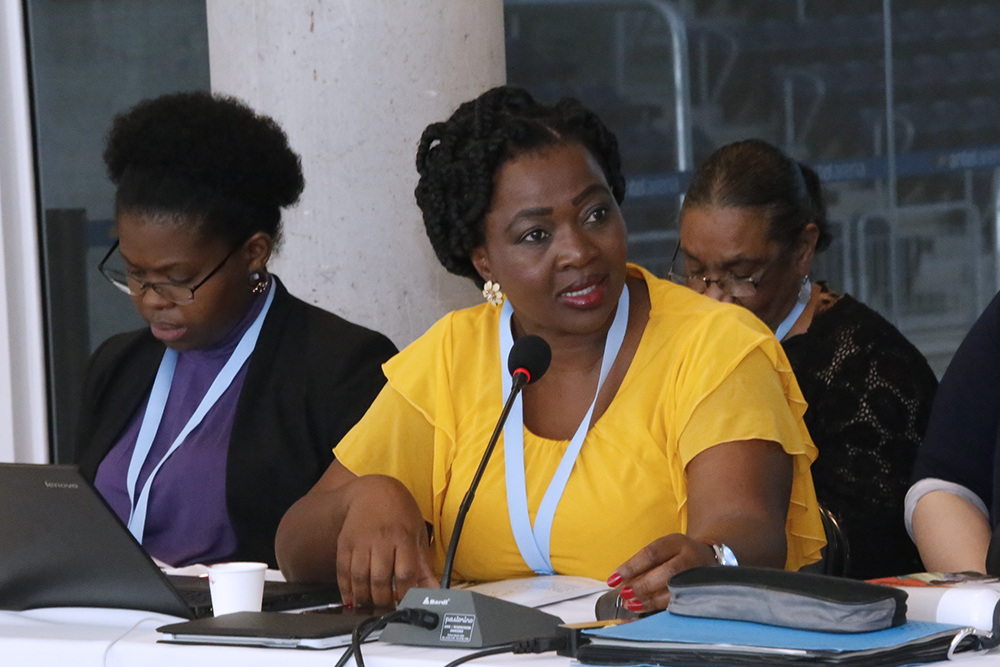
Noluzuko Gwayi, South Africa
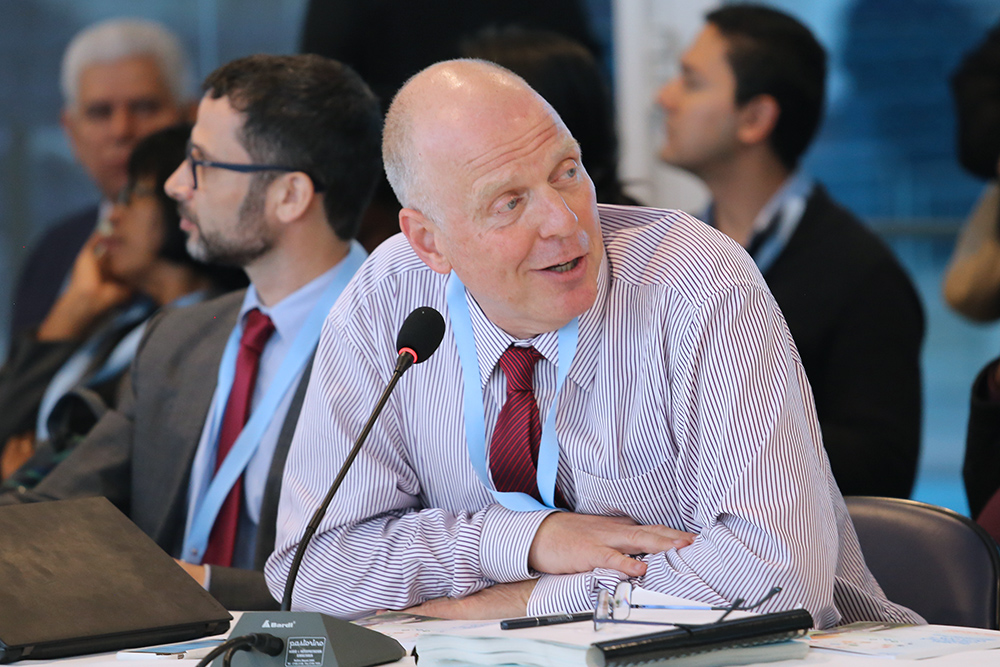
Achim Halpaap, UNEP
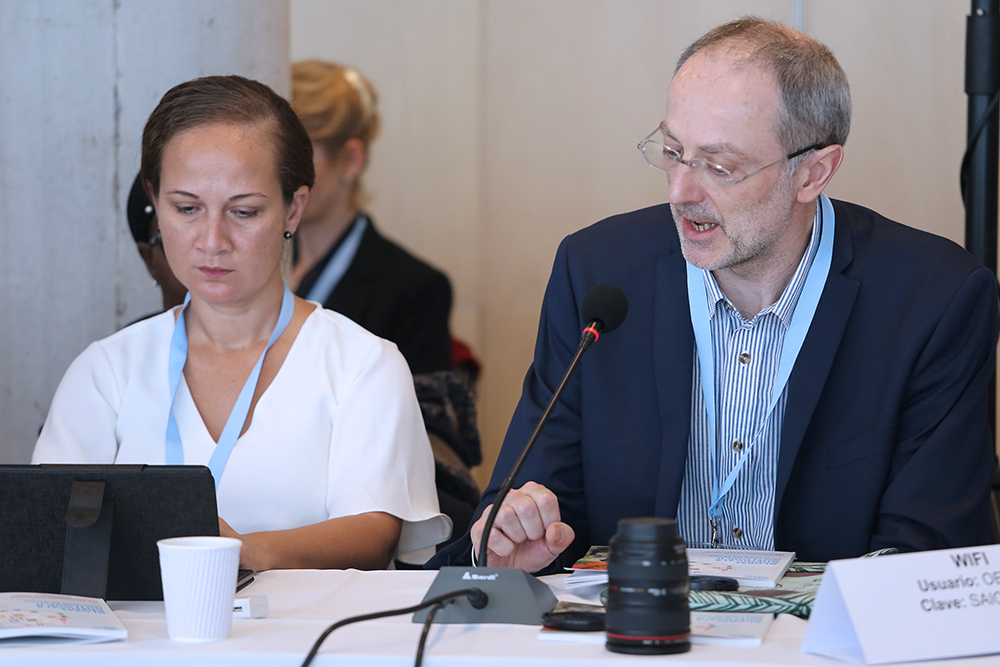
Lagipoiva Cherelle Jackson, IISD Reporting Services, and Robert Diderich, Organisation for Economic Co-operation and Development (OECD)
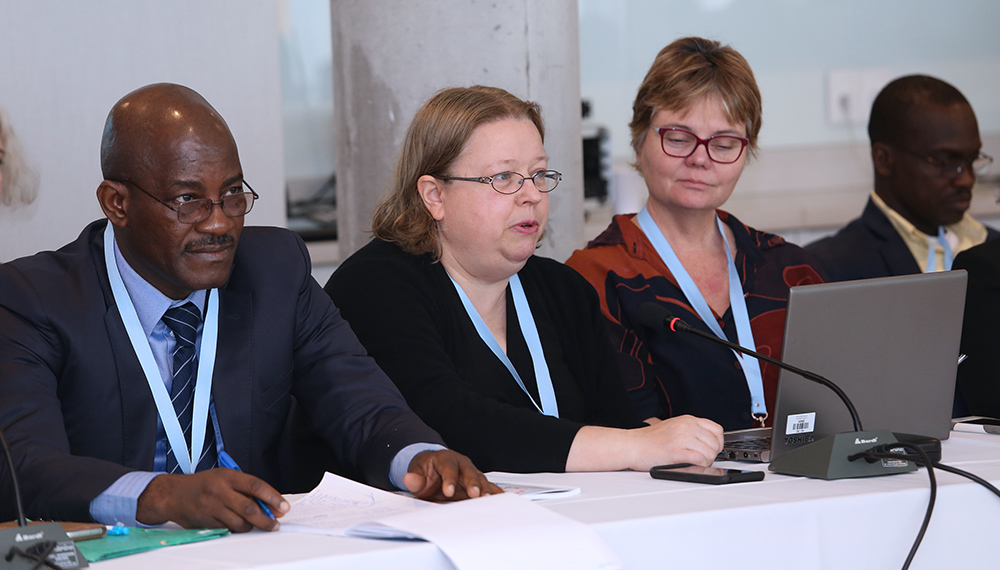
Suzanne Leppinen, Canada
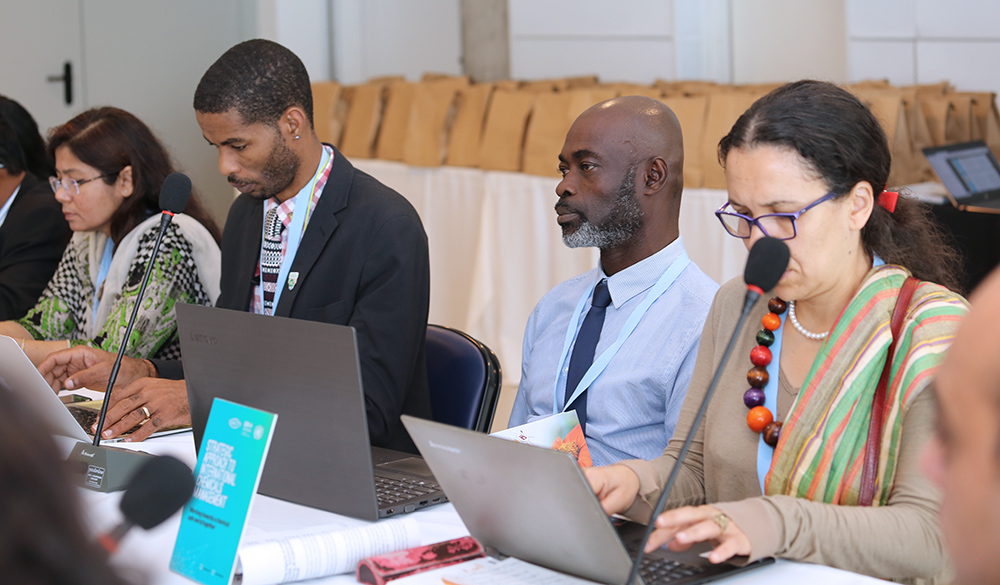
Participants during the technical session on the Second Edition of the Global Chemicals Outlook II
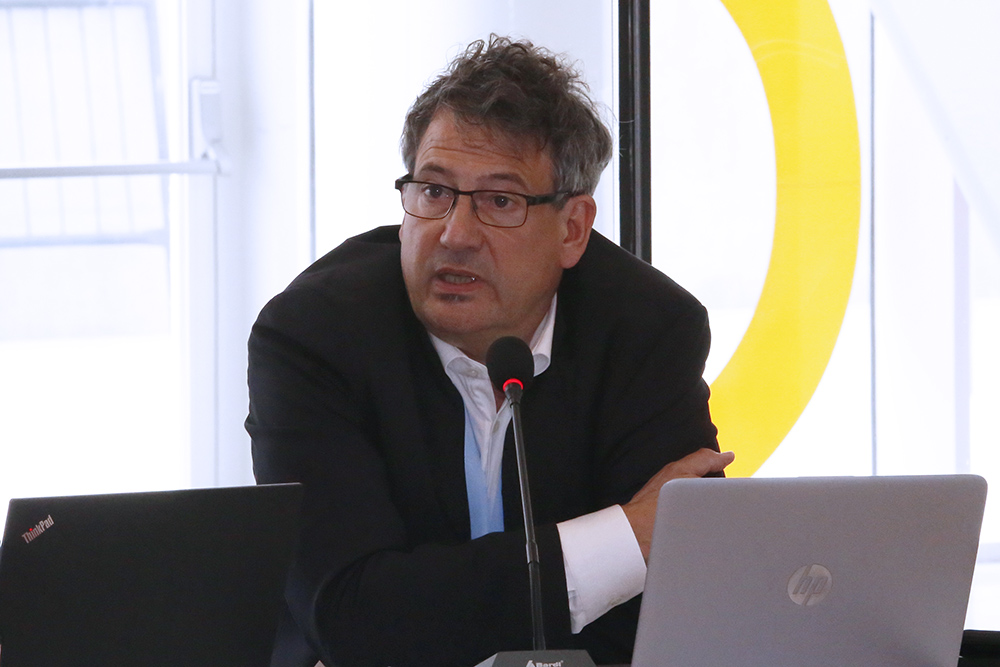
Christoph Neumann, CropLife International
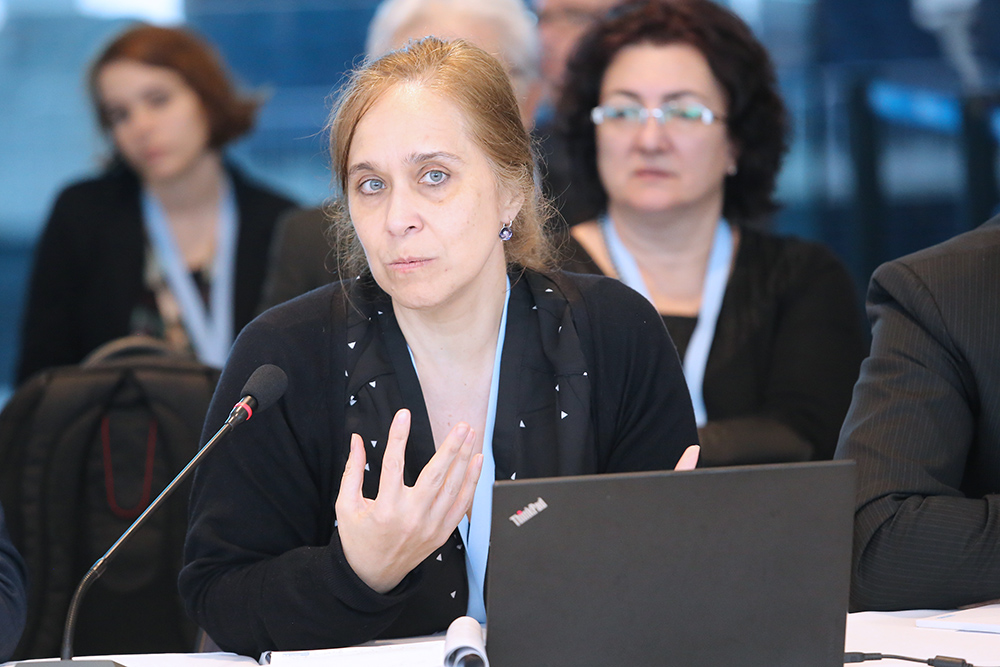
Jacqueline Alvarez, UN Environment
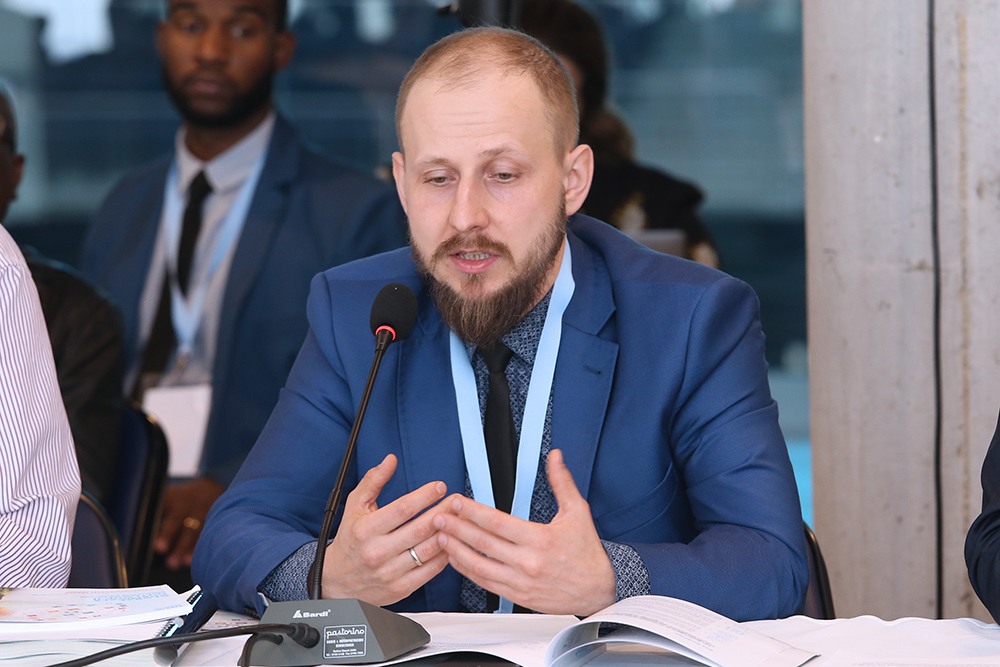
Szymon Domagalski, Poland
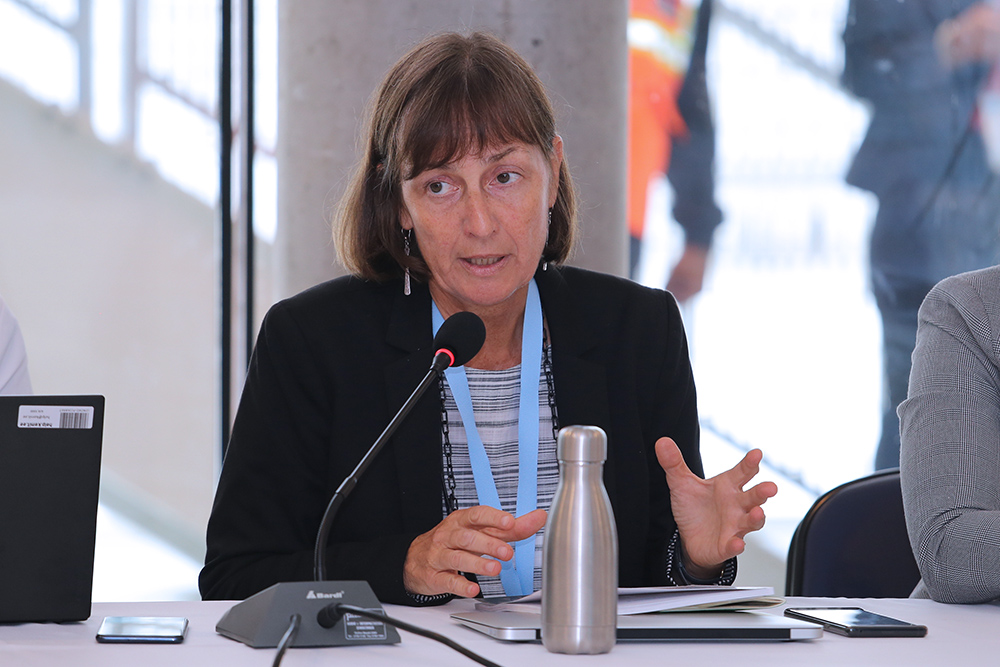
Hanna-Andrea Rother, University of Cape Town
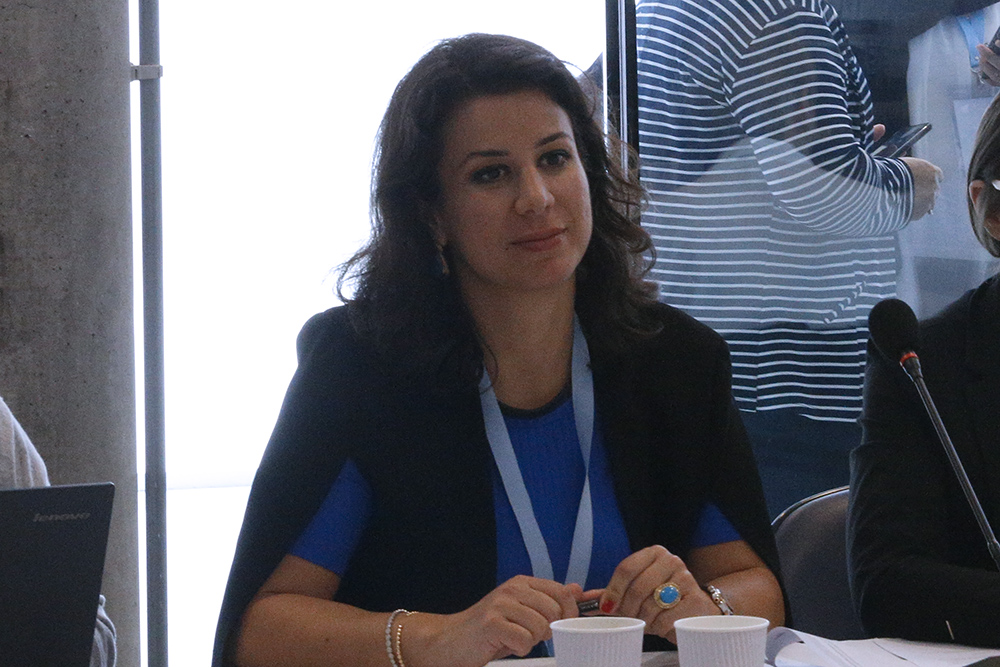
Manal Azzi, International Labour Organization (ILO)
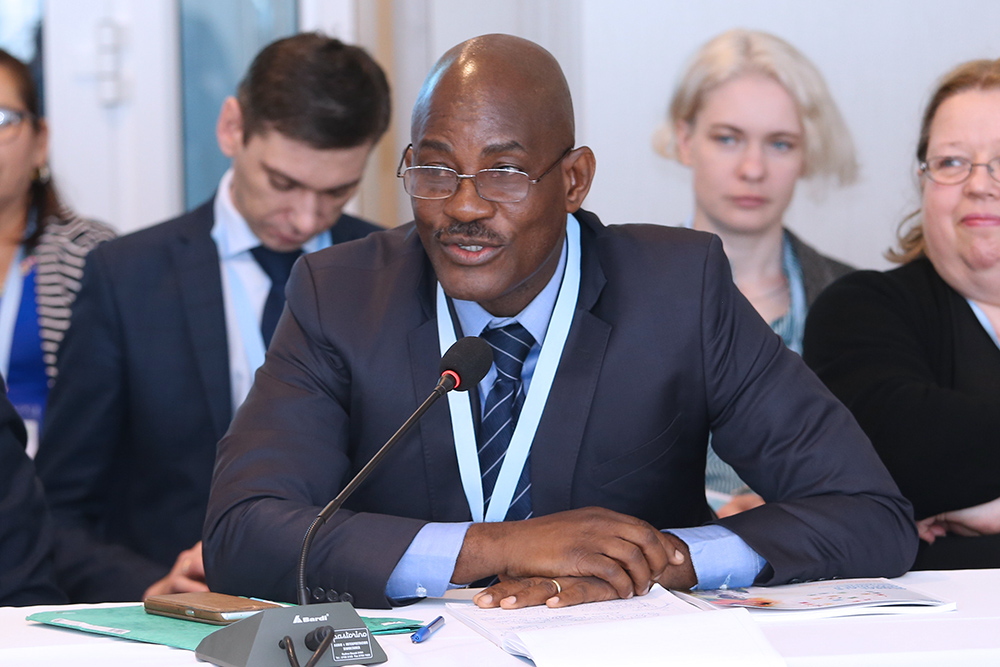
Kouame Georges Kouadio, Côte d'Ivoire

Maria Cristina Cárdenas Fischer, Basel, Rotterdam and Stockholm (BRS) Conventions Secretariat
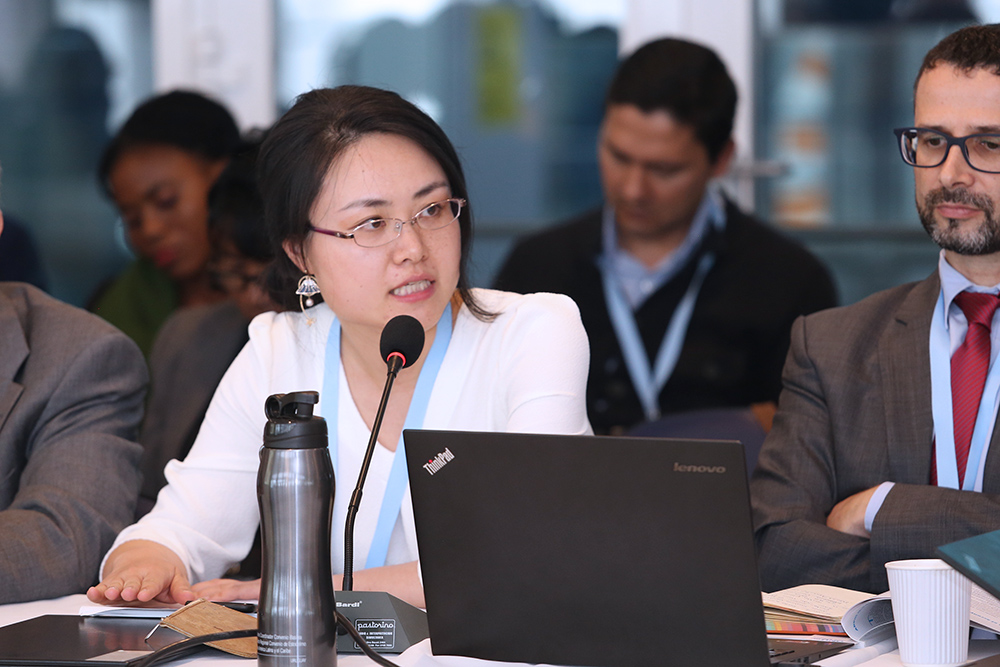
Melissa Mengjiao Wang, Greenpeace
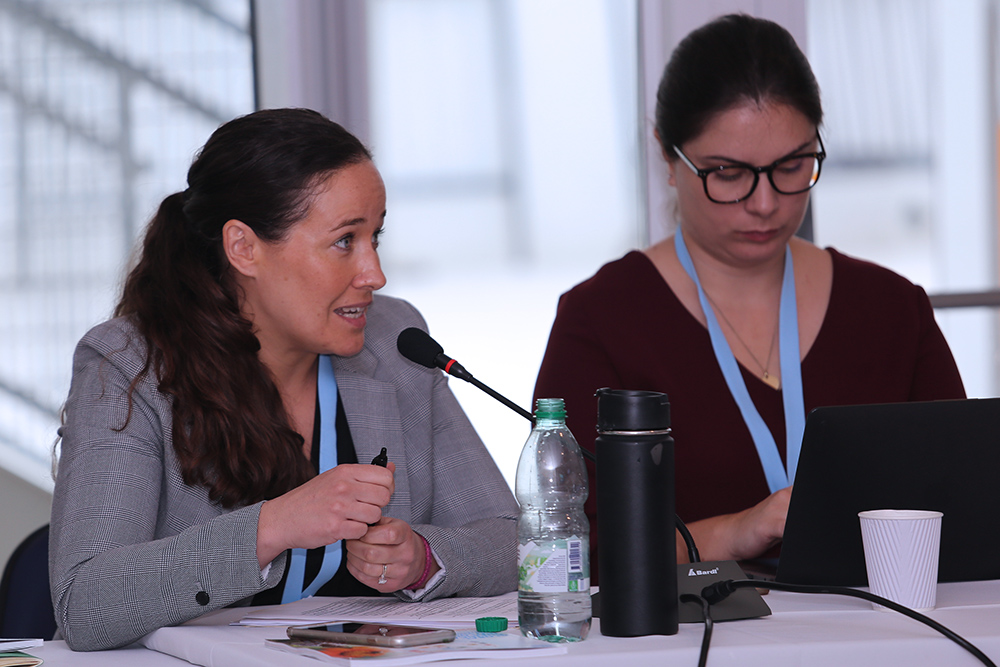
Evelyn Swain, Global Environment Facility (GEF)
An Improved Enabling Framework on Chemicals and Waste: A Multi-Stakeholder Dialogue
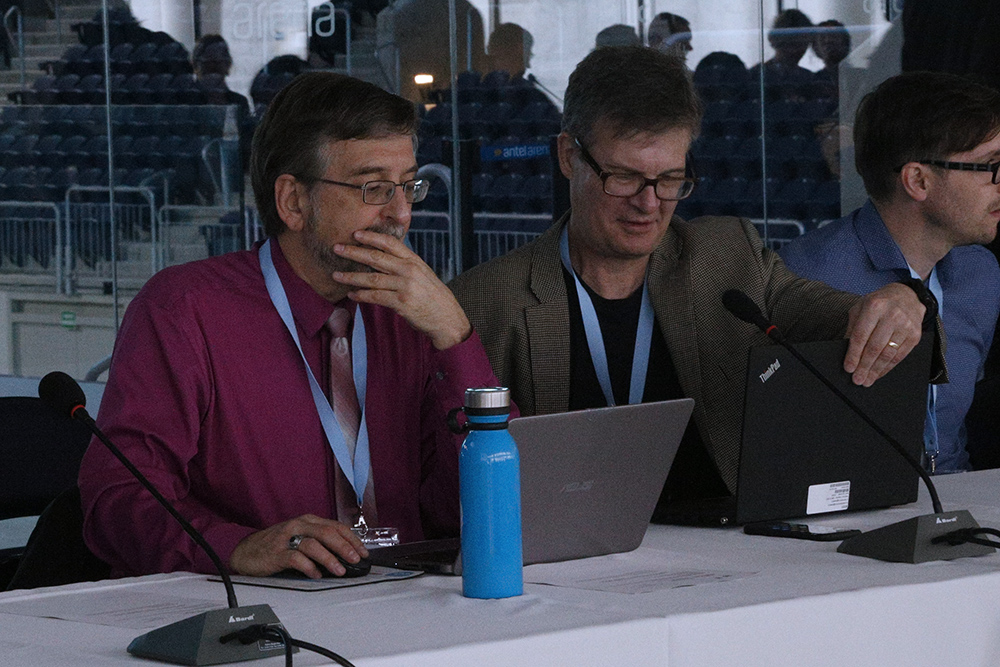
Keith Ripley, IISD-RS, and Greg Filyk, Canada
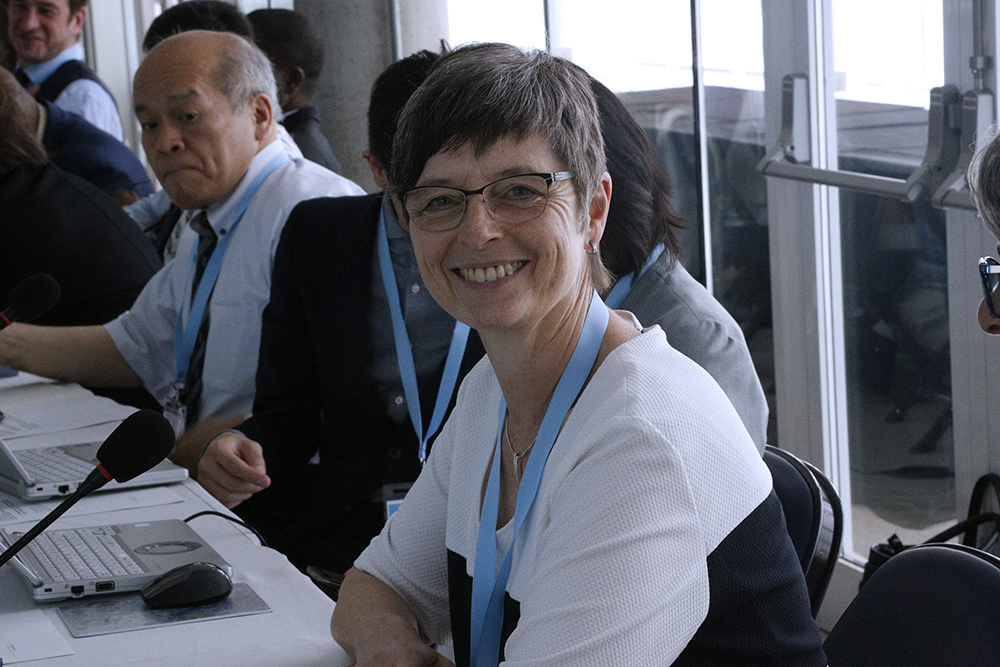
Jutta Emig, Germany
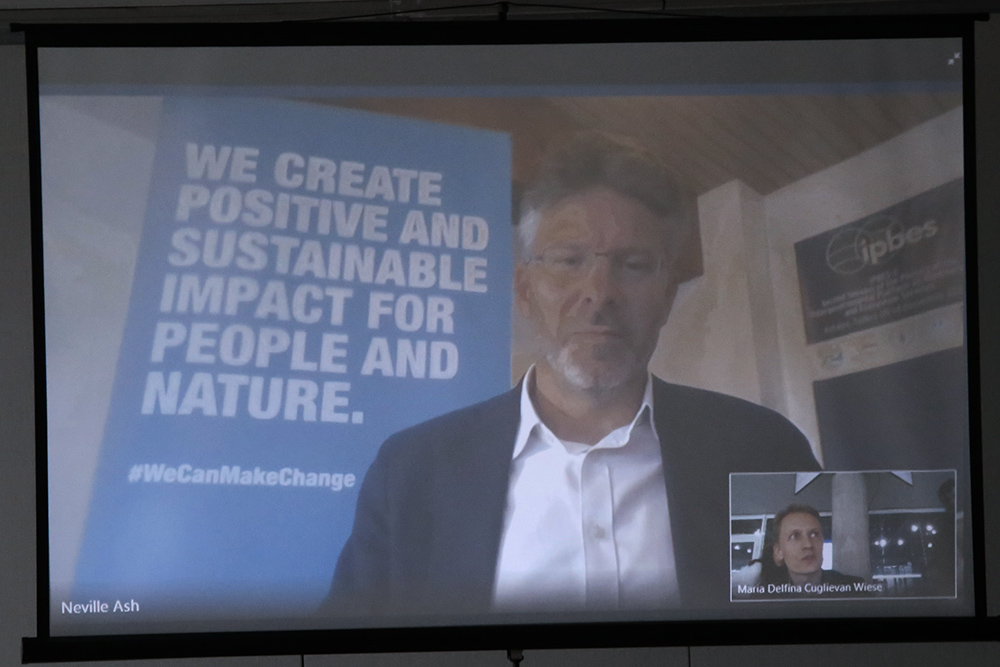
Neville Ash, UNEP World Conservation Monitoring Centre, by videoconference
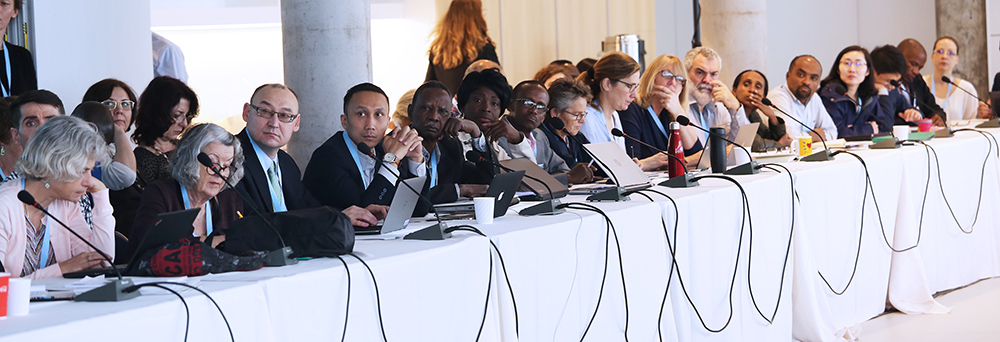
Participants during the session
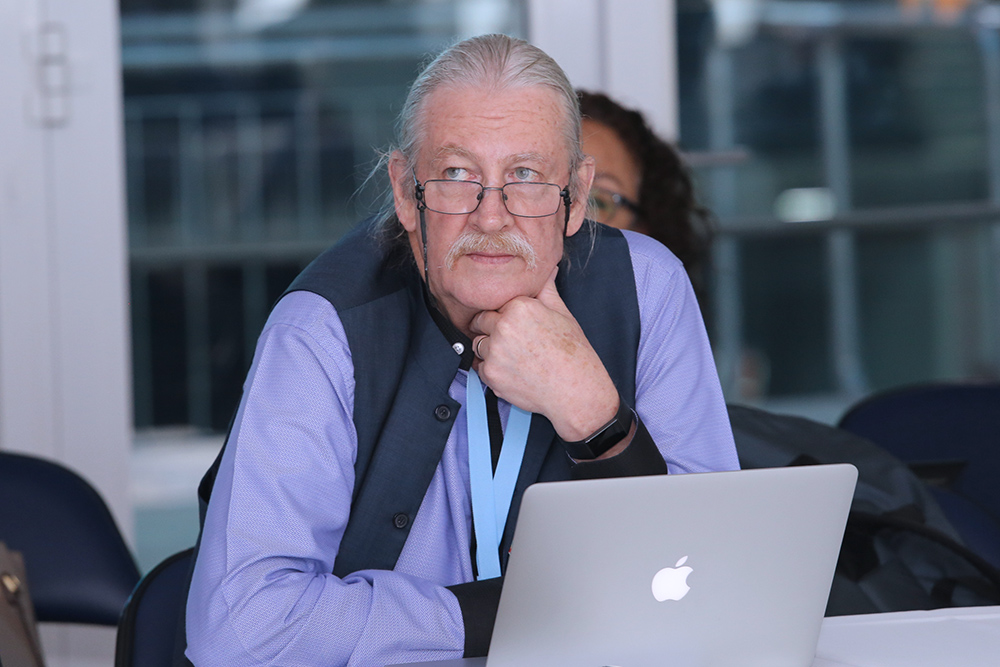
Alf Wills, Summit Outcomes
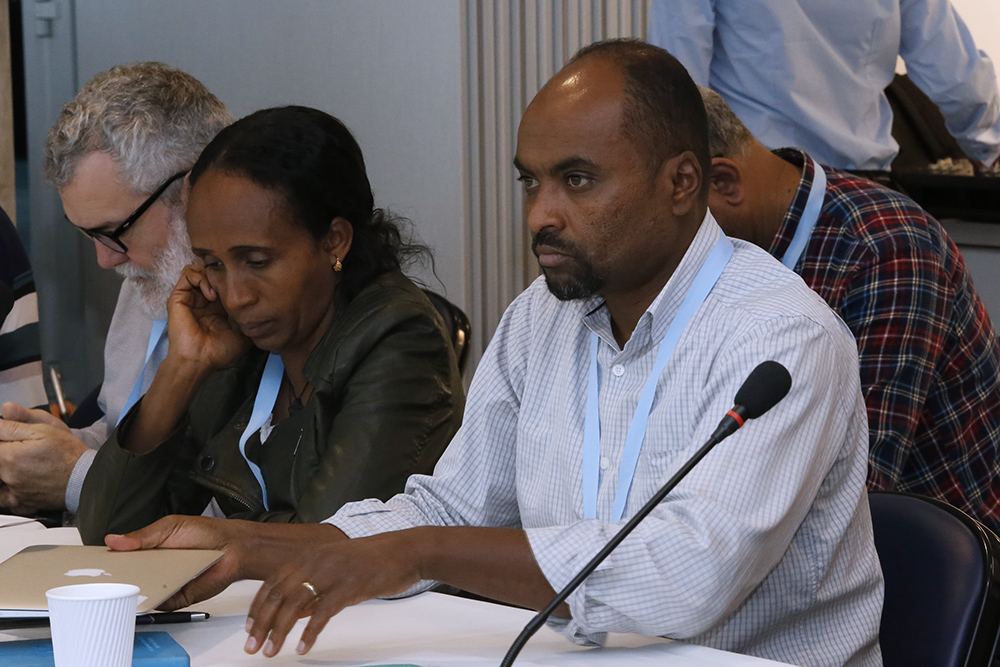
Participants during the session
Breakout Groups during the Session on an Improved Enabling Framework on Chemicals and Waste
Around the Venue





